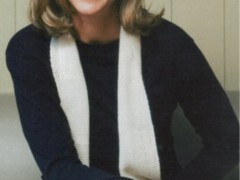Ecofashion leads the ecorevival

Worldwide, industries strive to achieve complete sustainability. With companies all turning ‘eco-friendly’ and judgement being pressed onto those who do not follow the green protocol, the fashion industry has been jolted into a state of flux.
Chain fashion companies with mass produced clothing lines are still dominating the fashion realm, however in recent years an eco-subculture has bloomed and slowly these labels are influencing the majority of what we see on shelves. Australian designers and eco-enthusiasts alike have joined forces to introduce a new mentality to shopper that prove you can be fashionable and environmentally aware.
A Cambridge University study reports that in 2006, people were buying a third more clothes than they were in 2002. Brands began competing against each other for market share by introducing more lines per year at lower costs, culminating in a situation where “fashion houses now offer up to 18 collections a year” and at a lower cost. This naturally has led to pressure on the supply chain.
The increase in the amount of clothes people consume also has consequences for the environment. Statistics suggest that on average, Australian consumers send 30kg of clothing and textiles per capita to landfill each year and that 1.2 million tonnes of clothing went to landfill in 2005 in Australia alone.
And thus we ask what is to be done now. Young fashion designers are enthusiastic and starting an ethical revolution under our noses, organic products and fair trade being the major contributors.
Fashion designer Sara Victoria has developed a self titled label that specifically uses organic cotton and natural produce for her collection. Ms Victoria believes that fashion and our choices of materials can ultimately contribute to an overall healthier lifestyle.
“I come from a health related background and I am aware of the rising cancer and other debilitating diseases that could otherwise be avoided with organic production. In choosing both organic food and textiles we support the farmers in healthier and longer lives, and the long chain that can be involved in the slow food and fashion industries.” She said.
Ms Victoria’s major concern is the environment and the way textiles in the clothing industry are treated before placed on shelves. “The use of harmful pesticides and herbicides, we need to consider where these harmful substances then go. They can end up in our water supplies, which become detrimental to food crops and our general environment. We think that they just go away, but there is no such place as away.”
The Sara Victoria label introduces an innovative and original range of both men and women’s clothing that has been specially designed not only to look good on the body but benefit the environment. Furthermore the collection aims to assist in personal health and wildlife preservation.
With each items of clothing from Sara Victoria’s line, the earth is saved from around 226 grams or 1/2 pound of toxic chemicals that disturb the natural balance of living through contamination of soil and air which ultimately affects our food products, wildlife habitation and general health.
“What we need to consider is that our skin is the biggest organ of our body and will absorb anything put on it. Most disease comes from long term abuse of the body, either, through absorption of foods with no nutritional value, the numbered additives you see on packaged foods, smoking and being in toxic environments,”
“The fair trade aspect goes hand in hand with organic. People care. They want to make a difference, and can make a difference within the industry by being aware and looking at the employees and creating transparency in the production line for better practices. Keeping it local allows you to not only support your community but also oversee all aspects.” She said.
Fashion designers who have recognised the need for environmentally sustainable fashion along with fair trade both locally and internationally are slowly spreading the word, and with any amount of luck ‘the green revolution’ could make the difference we want to see in the world.
“Designers are the ones who have the privilege of creating the future, they are the ones responsible for what they use and the processes they adopt.”
It is not only the responsibility of designers and the fashion industry alike to change the future and educate the community about environmental issues. It comes down to each individual. The fashion industry is just the beginning…
Tags: australia, eco friendly fashion, eco products, ecofashion, ecolabel, fair trade, green products, green revolution, organic products, Sara Victoria

